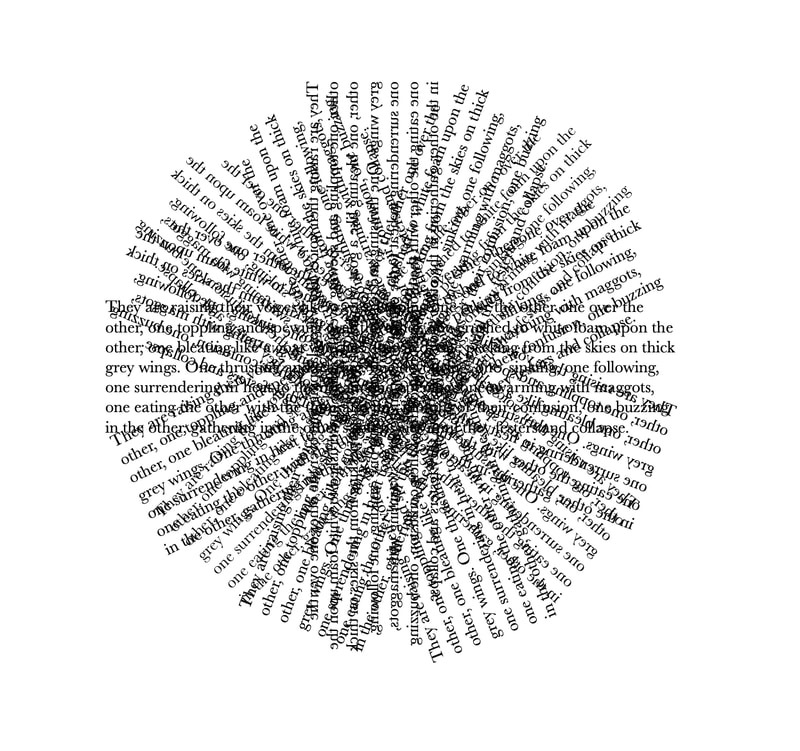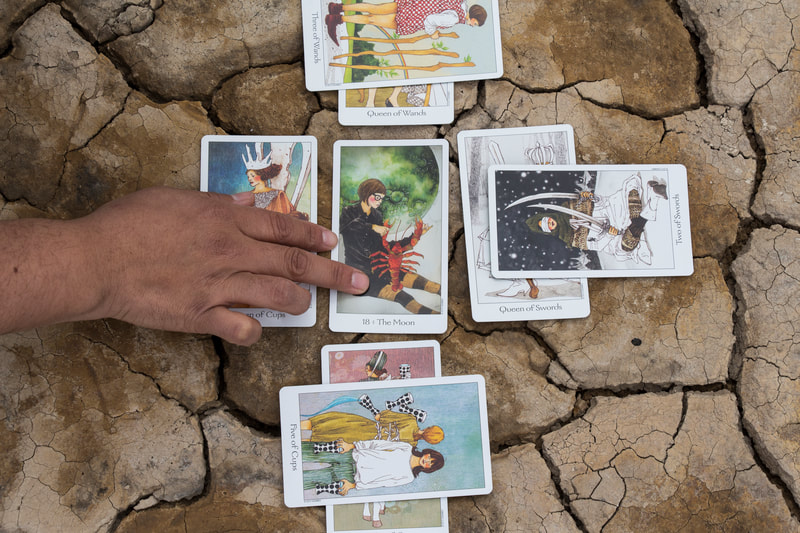|
Stephanie Adams-Santos is a Guatemalan-American writer whose work spans poetry, prose, and screenwriting. Often grappling with themes of strangeness and belonging, their work reflects a fascination with the weird, numinous and primal forces that shape inner life. They are the author of several full length poetry collections and chapbooks, including DREAM OF XIBALBA (selected by Jericho Brown as winner of the 2021 Orison Poetry Prize and finalist for a 2024 Oregon Book Award) and SWARM QUEEN'S CROWN (finalist for a Lambda Literary Award). Stephanie served as Staff Writer and Story Editor on the television anthology horror series TWO SENTENCE HORROR STORIES (Netflix), and was winner of a 2022 Gold Telly Award in TV Writing. They have received grants and fellowships from Sundance, Film Independent, Vermont Studio Center, Regional Arts and Culture Council, and Oregon Arts Commission. In addition to their literary work, Stephanie is illustrating an original Major Arcana tarot deck called Tarot de La Selva.
[Stephanie Adams-Santos] invokes history as a knowledge that can be felt, something with the potential to transform (and transform our perspectives) at the intersections of language and image, intimacy and violence, and grief and galvanization. [Her work has] energies of fierce need, searching and self-possession...peers deeply and thoughtfully into pain...There is a distinct, composed wildness in her voice. She is preoccupied with solitude and its effects on the body, and you can find her, in poems, scouring a landscape for what lives there, then reaching into it. ...a distinct and bold new voice |
A note about "Obscuro Beach"
In high school, I found a tiny vintage book at Goodwill called "The Philosopher's Stone." It was full of arcane concepts and diagrams that fascinated and beguiled me. I had stumbled upon a work on Alchemy. Without understanding what I was reading, I could grasp the sense of a veiled, spiritual language of change and transformation. A certain phrase from the book, "Obscurum per obscurius," has stuck with me to this day. To me, it means that Mystery is a crucial mechanism by which to approach understanding. It is a veil that is never fully lifted — an eternally rippling fabric that beckons us toward what is hidden, while always evading full comprehension. The idea of Mystery is a theme in all my creative expressions.
"Obscuro Beach" was the title of one of my earliest poems. The poem was inspired by the Pacific Northwest beaches of my childhood (Manzanita, Cannon beach, Neah Bay) where my siblings and I played out elaborate games of mystery, murder, and horrific wonderment. The beach to me never represented "vacation" in the sense of palm trees and beach umbrellas. It was a primal place of churning waters, constant fog and rain, washed up bodies of birds and sea-things. There, la Llorona floated along the edges of the mist at the hour just before sleep, where sorrow festered amorphously (and amorously) in the tide-foam, crowned by flies and gulls. A primal place. A mysterious place.
"Obscuro Beach" refers to a recurring place of dreaming and recollection that can't be fully grasped. Obscure (enigmatic, vague, not easily grasped) + oscuro ("dark" in spanish) = Obscuro. And the callback to the Latin: Obscurum per obscurius. A place from my childhood fantasies and memory, where the two mingle and merge, a palimpsest of the imagination over time. A bizarro kind of place. A place of Mystery. A place that doesn't exist, yet does.
In high school, I found a tiny vintage book at Goodwill called "The Philosopher's Stone." It was full of arcane concepts and diagrams that fascinated and beguiled me. I had stumbled upon a work on Alchemy. Without understanding what I was reading, I could grasp the sense of a veiled, spiritual language of change and transformation. A certain phrase from the book, "Obscurum per obscurius," has stuck with me to this day. To me, it means that Mystery is a crucial mechanism by which to approach understanding. It is a veil that is never fully lifted — an eternally rippling fabric that beckons us toward what is hidden, while always evading full comprehension. The idea of Mystery is a theme in all my creative expressions.
"Obscuro Beach" was the title of one of my earliest poems. The poem was inspired by the Pacific Northwest beaches of my childhood (Manzanita, Cannon beach, Neah Bay) where my siblings and I played out elaborate games of mystery, murder, and horrific wonderment. The beach to me never represented "vacation" in the sense of palm trees and beach umbrellas. It was a primal place of churning waters, constant fog and rain, washed up bodies of birds and sea-things. There, la Llorona floated along the edges of the mist at the hour just before sleep, where sorrow festered amorphously (and amorously) in the tide-foam, crowned by flies and gulls. A primal place. A mysterious place.
"Obscuro Beach" refers to a recurring place of dreaming and recollection that can't be fully grasped. Obscure (enigmatic, vague, not easily grasped) + oscuro ("dark" in spanish) = Obscuro. And the callback to the Latin: Obscurum per obscurius. A place from my childhood fantasies and memory, where the two mingle and merge, a palimpsest of the imagination over time. A bizarro kind of place. A place of Mystery. A place that doesn't exist, yet does.






